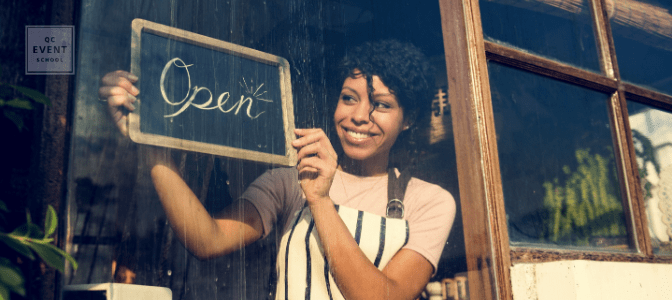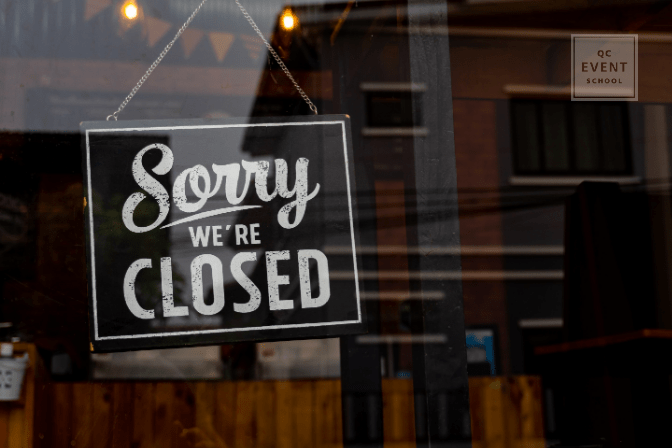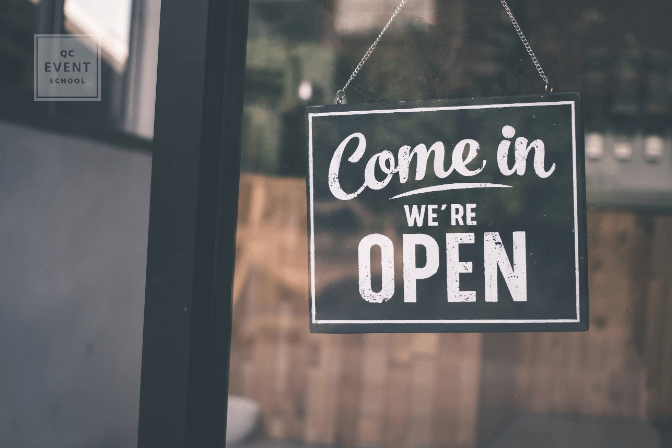
Your Event Planning Career: When Will the Industry Go Back to Normal?
Your event planning career likely underwent some major changes in 2020. Thanks to the COVID-19 pandemic, in-person gatherings were either severely limited or prohibited altogether. Perhaps you used that time to re-evaluate your strategies so that you could come back stronger in the aftermath. Maybe you chose to switch to virtual event and wedding services so you could continue booking clients, even amidst social distancing.
Either way, 2020 marked the year of global change. Event and wedding planners everywhere needed to learn how to adapt – and quickly. Still, there was a sliver of hope that once 2021 rolled around, things would magically go back to how they used to be. In retrospect, maybe that was a little naïve of us.
Because the New Year is here now. It’s settled in. Except things aren’t all that different to how they were 6 months ago. Does this mean that 2021 is destined to be a repeat of all the stressful events we had to undergo in 2020?
Your Event Planning Career in 2021
Here’s the Good News…
There IS reason to believe that 2021 could very well mark that ‘return to normalcy’ we’re all desperate for. Heck, there are even stats to support this belief. We’ll delve more deeply into this in a moment. But just know that if things work out the way projections currently indicate, your event planning career will be on an upward trajectory this year. So will the event and wedding planning industry itself!
Here’s the Bad News…
Unfortunately, everything we’re about to discuss is in no way set in stone. It’s important to keep this in mind and not get our hopes up. If 2020 taught us nothing else, it’s that if the universe has a plan, we might not see it coming and we definitely won’t be able to stop it. Pandemics are tricky, unpredictable things.
The most we can do is try to predict what could possibly happen, based on the information accessible to us right now. This information itself is based on best interpretations on what governments have been saying. So – again – we urge you to approach this article with a cautiously optimistic attitude. At this point, that’s pretty much the only attitude we’ve adopted when it comes to anything related to this pandemic.
The Second Wave is Here
Currently, much of the world is knee-deep in a second COVID wave. This time around, there’s a new strain of the virus that’s more easily transmitted. If COVID were a fictional character, the first strain would have been Bruce Banner. This new one is the Hulk. As a result of this new strain going all “HULK SMASH”, the response has been another lockdown. Once again, events and weddings need to be strictly virtual for the time being in most places.
Enter: The Vaccine
Now, even though 2020 was a complete dumpster fire, there was one ray of light that ended off the year. Of course, we’re referring to the discovery of a COVID vaccine. However, it’s still a bit too soon to celebrate completely. After all, while this vaccine has been slowly rolling out, there’s plenty of uncertainty surrounding it. For instance, the pace of vaccinations, as well as the supply, are unknown to the public at this time. First Responders are being treated first (which is fantastic), but in terms of widespread accessibility? That’s still up in the air.
Here’s What We Do Know
Despite the above, there are a few certainties we can deduce at this stage in the game. For one, fatalities are concentrated in older individuals. They are also higher for those struggling with other illnesses. These higher risk individuals are already prioritized for vaccination in many areas.
Then what? Well, if everyone over 50 can be vaccinated, the death rate due to COVID-19 will plummet drastically. Once this happens, cities everywhere will be allowed to reopen their doors and businesses. In terms of your event planning career, this means that you can expect in-person celebrations to resume again – with social distancing measures in place, of course. And probably mask mandates.
What the Numbers Have to Say
Based off data harvested in 2020, approx. 9% of the world’s population are aged 65 or over (as of last year). Given that the planet’s population was approx. 7.8 billion in 2020, this equates to approx. 702,000,000 people within that age bracket. That’s not even counting the additional number of people between the ages of 50 and 64.
In the United States, the United Kingdom, Canada, and Australia, the demographic over 50 years old represents roughly 25 to 35% of the population. Hypothetically, if each of these individuals were to get vaccinated, this would mean:
- Approx. 100 million people would be vaccinated in the US;
- Approx. 18 million people would be vaccinated in the UK;
- Approx. 11 million people would be vaccinated in Canada;
- And approx. 8 million people would be vaccinated in Australia.
What This Indicates
In the United States, President Biden has promised to hit the “30% vaccinated” target in 3.5 months (so, by the end of April). Canada, on the other hand, is predicted to hit its target in July. Mid-April is when the UK is predicted to hits its target, followed shortly afterwards by Australia, which is projected to hit its target by May or June.
Then there’s also herd immunity to take into consideration. Herd immunity can only be achieved once the majority of a given area’s population is vaccinated. When it comes to COVID-19, medical experts aren’t quite sure yet what the threshold is (that is, how many people need to be vaccinated first, in order for herd immunity to be possible).
However, let’s operate under the assumption that the above countries will hit their targets as expected. In this case, it could very well be likely that herd immunity – equated to 70% of the population – will be achieved within approx. 2 to 4 months after these respective targets are hit. At that point, the economies will finally reopen in full.
In a nutshell, here’s what this will look like (if all goes according to plan):
We can be hopeful that the United States and United Kingdom will be heading back to normal by the late summer, and that Australia and Canada will do the same in the final quarter of 2021.
How Will This Affect Your Event Planning Career?
Depending on when your country hits its target, in-person events and wedding will once again become possible. If you reside in either the US or the UK, planning normal events for the late should be feasible -albeit slightly risky. The fall would be a safer period. If you live in Canada or Australia, chances are you’ll have to wait for the fall season (or even winter of 2022) in order to safely organize large in-person celebrations again.
The point, though, is that hope definitely looks to be on the horizon! If things continue the way they’re currently going, event and wedding planners should be able to organize live events and return to a sense of normalcy by the end of this year.
Yes, proper social distancing measures will likely need to be put into place for the indefinite future. But this will be a very small price to pay! After so much time spent away from regular human interaction, it will be a welcomed relief to be able to work in-person with clients again.
Plus, there will be a ton of people jumping at the chance to have a physical celebration once it’s allowed again. Play your cards right and you’ll have more bookings than you’ll know what to do with! Things might have been difficult over the last year, but you’ve stuck with it and made your business stronger. Keep that up and your event planning career will be met with nothing but success before you know it!





